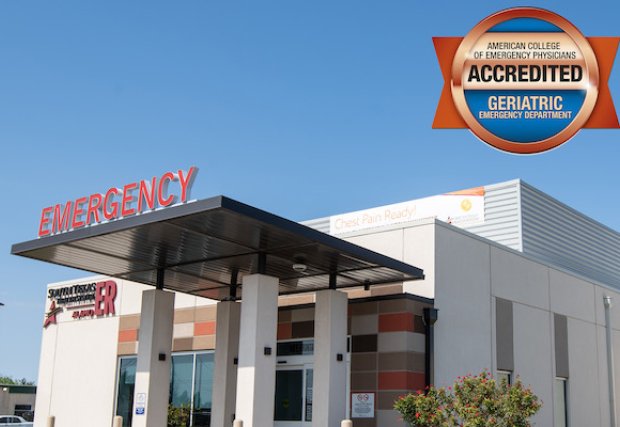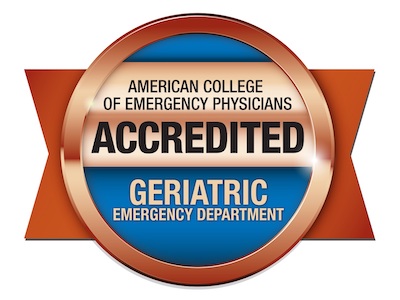South Texas Health System ER Alamo Earns Level 3 Geriatric Emergency Department Designation

Health challenges can arise at any age, but health complications are more likely to occur the older one gets. Nearly 92% of seniors have at least one chronic disease and about 77% have at least two, according to the National Council of Aging. Among the most common are heart disease, stroke and diabetes, which are also the costliest chronic health conditions among the senior population and cause two-thirds of deaths.
Seniors are more likely to visit emergency departments than non-seniors. They are at greater risk for falls due to shrinking bones and the loss of strength and flexibility associated with aging. A senior dies from falling every 29 minutes, making it the leading cause of injury among the elderly, according to the Centers for Disease Control and Prevention.
Additionally, their numbers continue to grow. Senior populations around the world are living longer than ever with an estimated 10,000 Baby Boomers turning 65 every day in the U.S., according to the U.S. Census Bureau, with all Boomers expected to cross that threshold by 2030.
Level 3 Geriatric Emergency Department
 South Texas Health System ER Alamo is committed to addressing that growing need within the region’s elderly community. The facility has earned a Level 3 Geriatric Emergency Department Accreditation (GEDA) from the American College of Emergency Physicians (ACEP). The recognition comes on the heels of a similar designation by the ACEP for South Texas Health System ER Weslaco in November 2022.
South Texas Health System ER Alamo is committed to addressing that growing need within the region’s elderly community. The facility has earned a Level 3 Geriatric Emergency Department Accreditation (GEDA) from the American College of Emergency Physicians (ACEP). The recognition comes on the heels of a similar designation by the ACEP for South Texas Health System ER Weslaco in November 2022.
The bronze level designation by ACEP recognizes the two freestanding emergency departments’ dedication to providing a high standard of care that meets the unique healthcare needs of older adults living in the Rio Grande Valley.
South Texas Health System ER Alamo
“It’s important to help our senior population live as comfortably, safely and independently as possible, and South Texas Health System is committed to providing quality, compassionate care that meets the needs of the elderly in the RGV,” says Brenda Ivory, Chief Executive Officer, South Texas Health System Heart, who oversees the system’s six freestanding emergency departments including STHS ER Alamo. “This certification serves as a testament to our dedication to bringing an underserved population important healthcare access focused on their specific needs and special requirements.”
To earn the accreditation, an emergency department must have one MD or DO with evidence of four hours of education for geriatric emergency medicine (EM), one RN with evidence of focused education for geriatric EM, access to mobility aids (canes, four-point walkers), evidence of a geriatric emergency care initiative (e.g., urinary catheter utilization policy) and easy access to food and drink 24/7.
As a Level 3 GEDA emergency department, STHS ER Alamo must incorporate many of the GEDA program’s best practices, along with providing inter-disciplinary geriatric education and having geriatric appropriate equipment and supplies available.
Geriatric Emergency Department Accreditation Program
The Geriatric Emergency Department Accreditation program was developed by the American College of Emergency Physicians along with the Society for Academic Emergency Medicine, Emergency Nurses Association and American Geriatrics Society to improve and standardize emergency care for older patients through enhanced staffing and education, geriatric-focused policies and protocols and more efficient preparation of the treatment area. It includes geriatric emergency department guidelines with recommending measures ranging from adding geriatric-friendly equipment to specialized staff to more routine screening for delirium, dementia and fall risk, among other vulnerabilities.
To improve access to care for seniors across all communities that make up the Rio Grande Valley, South Texas Health System is working with the American College of Emergency Physicians to receive the Geriatric Emergency Department Accreditation at its four remaining freestanding emergency departments by the end of 2023.
